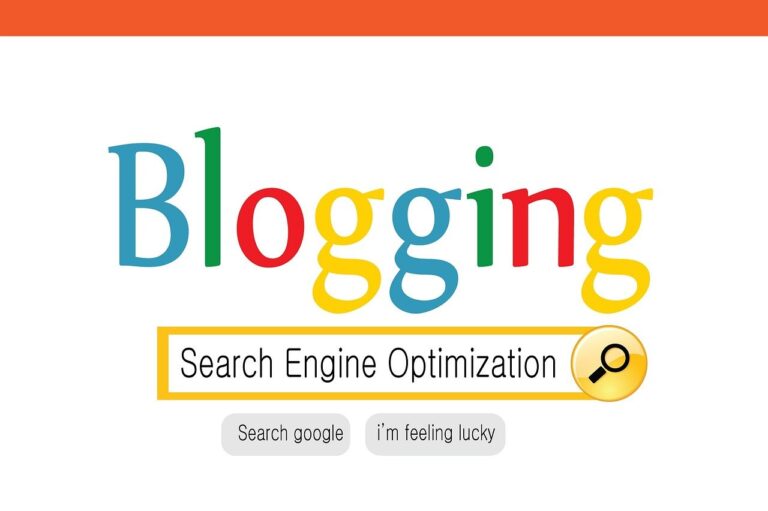Client confidentiality is a cornerstone of trust in holistic health practices. As a practitioner, you have a legal and ethical obligation to protect your clients’ personal information and maintain their privacy.

Understanding the legal requirements and best practices for client confidentiality is crucial for your holistic health practice. It not only ensures compliance with regulations but also builds a foundation of trust with your clients.
By implementing robust data security measures and adhering to privacy guidelines, you can create a safe and confidential environment for your clients to share sensitive information.
Protecting client privacy in holistic therapy practices involves implementing actionable data security measures. This includes securing electronic records, using encrypted communication channels, and training staff on confidentiality protocols.
By prioritizing these aspects, you can demonstrate your commitment to client privacy and maintain the integrity of your practice.
Key Takeaways
- Client confidentiality is legally mandated and essential for building trust in holistic health practices
- Implementing robust data security measures helps protect client privacy and ensure compliance
- Understanding exceptions to confidentiality and developing practical strategies are crucial for maintaining ethical standards
The Importance Of Client Confidentiality In Holistic Health
Client confidentiality is a cornerstone of holistic health practices. It creates a foundation of trust between you and your practitioner, allowing for open and honest communication.
In holistic therapy, you often share sensitive personal information. This may include physical, emotional, and spiritual aspects of your life.
Protecting this information is crucial for your privacy and well-being.
Safeguarding patient privacy is not just an ethical obligation but also a legal requirement. Holistic health practitioners must adhere to strict confidentiality standards, similar to those in traditional healthcare settings.
Confidentiality encourages you to seek help without fear of judgment or disclosure. It ensures that your personal health information remains private, giving you control over who knows about your health status and treatments.
Key aspects of client confidentiality in holistic health include:
- Secure storage of client records
- Limited access to your information
- Obtaining your consent before sharing any details
- Maintaining privacy during consultations and treatments
When confidentiality is upheld, you can focus on your healing journey without worrying about information leaks. This peace of mind contributes significantly to the effectiveness of holistic treatments.
Remember, your right to privacy extends to all aspects of holistic care. Whether you’re receiving acupuncture, herbal remedies, or energy healing, your personal information should always be protected.
Legal Framework For Client Confidentiality

The legal framework for client confidentiality in holistic health encompasses federal and state laws that protect patient privacy. These regulations outline practitioners’ responsibilities and guide best practices for handling sensitive information.
Overview Of Relevant Laws And Regulations
Client confidentiality is a fundamental ethical principle in healthcare, including holistic practices. The primary federal law governing patient privacy is the Health Insurance Portability and Accountability Act (HIPAA).
HIPAA sets national standards for protecting sensitive patient health information. It applies to health plans, healthcare providers, and healthcare clearinghouses.
State laws often provide additional protections. These may include specific regulations for mental health records or alternative medicine practices.
Professional organizations in holistic health fields typically have their own ethical codes. These codes often emphasize the importance of maintaining client confidentiality.
HIPAA Compliance For Holistic Health Practitioners
As a holistic health practitioner, you must understand and comply with HIPAA regulations. This includes implementing safeguards to protect patient information.
You’re required to obtain written consent before sharing patient information. Exceptions exist for emergencies or when required by law.
HIPAA compliance involves:
- Developing privacy policies
- Training staff on confidentiality procedures
- Securing electronic health records
- Limiting access to patient information
Violations can result in significant fines and damage to your professional reputation. Regular audits of your practices can help ensure ongoing compliance.
State-Specific Confidentiality Requirements
State laws can add layers of protection to federal regulations. As a holistic health practitioner, you must be aware of your state’s specific requirements.
Some states have stricter rules for certain types of health information. For example, mental health records or substance abuse treatment data may have additional protections.
You should familiarize yourself with:
- Consent requirements in your state
- Mandatory reporting laws
- Rules for sharing information with other providers
State medical boards or professional licensing bodies often provide guidance on confidentiality requirements. Staying informed about changes in state laws is crucial for maintaining compliance.
Best Practices For Maintaining Client Confidentiality
Protecting client privacy is essential in holistic health practices. Implementing robust policies, training staff, and securing records form the foundation of effective confidentiality measures.
Creating And Implementing Confidentiality Policies
Develop clear, comprehensive confidentiality policies tailored to your practice. Include guidelines on data security and HIPAA compliance.
Define what information is considered confidential and outline procedures for handling sensitive data.
Establish protocols for obtaining client consent before sharing any information. Create policies for communicating with clients through various channels, including email, phone, and text messages.
Regularly review and update your policies to address new technologies and emerging privacy concerns. Ensure all staff members understand and sign confidentiality agreements.
Consider consulting with a legal professional to ensure your policies meet all regulatory requirements.
Training Staff On Confidentiality Procedures
Provide thorough, ongoing training to all staff members on confidentiality procedures. Cover topics such as HIPAA regulations, ethical obligations, and your practice’s specific policies.
Conduct regular refresher courses to reinforce key concepts and address any questions or concerns.
Use real-world scenarios and role-playing exercises to help staff understand how to handle various situations.
Train employees on secure communication methods and proper handling of client information. Emphasize the importance of discretion in all client interactions.
Establish a system for staff to report potential breaches or concerns about confidentiality. Encourage an open dialogue about privacy issues within your practice.
Secure Storage And Handling Of Client Records
Implement robust security measures for both physical and digital client records. Use locked filing cabinets for paper documents and password-protected, encrypted systems for electronic files.
Limit access to client information on a need-to-know basis. Utilize unique login credentials for each staff member and implement two-factor authentication where possible.
Regularly back up electronic records and store backups securely off-site. Develop a data retention policy that complies with legal requirements and best practices.
Establish procedures for securely disposing of client records when they are no longer needed. This may include shredding paper documents and securely wiping electronic storage devices.
Navigating Exceptions To Confidentiality
Confidentiality in holistic health practices has important limits. You must understand when disclosures are required or permitted by law, how to properly handle information requests, and navigate complex legal and ethical situations.
Understanding Permissible Disclosures
Psychologists may disclose private information without consent in certain situations to protect clients or the public from serious harm. This includes cases where a client expresses plans to attempt suicide or harm another person.
You should familiarize yourself with mandatory reporting laws in your jurisdiction. These often require reporting of suspected child abuse, elder abuse, or threats of violence.
Disclosures may also be permissible for insurance billing purposes or when required by court order. Always consult relevant laws and professional guidelines to ensure compliance.
Handling Requests For Information
When you receive requests for client information, carefully verify the requester’s authority and the scope of information requested. Obtain written client consent whenever possible before releasing any records.
For subpoenas or court orders, consult with legal counsel to determine your obligations. You may be able to limit disclosure to only what’s legally required.
Maintain detailed documentation of all information requests and disclosures. This protects you and demonstrates your commitment to protecting client privacy.
Managing Situations Involving Legal Or Ethical Dilemmas
Complex situations may arise where legal and ethical obligations seem to conflict. You might encounter a minor client engaged in risky behavior or an adult client threatening self-harm.
In these cases, carefully weigh your duty to protect confidentiality against potential risks. Consult with supervisors, colleagues, or ethics boards when unsure how to proceed.
Document your decision-making process and rationale for any disclosures made. This helps demonstrate you acted in good faith to balance competing obligations.
Always prioritize client safety and well-being while striving to maintain trust and confidentiality to the greatest extent possible.
Unique Challenges In Holistic Health Confidentiality

Holistic health practitioners face distinct confidentiality challenges due to the comprehensive nature of their approach. These challenges require careful consideration and tailored solutions to protect client privacy while delivering effective care.
Addressing Confidentiality In Group Settings
Group therapy and workshops are common in holistic health practices, presenting unique confidentiality concerns. You must establish clear guidelines for participants to respect each other’s privacy.
Implement a confidentiality agreement that all attendees sign before joining group sessions.
Create a safe space by discussing the importance of confidentiality at the beginning of each session. Encourage participants to speak in general terms about their experiences outside the group.
Consider using anonymous sharing methods for sensitive topics. This allows clients to benefit from group insights while maintaining privacy.
Train your staff to handle potential breaches of confidentiality swiftly and professionally.
Managing Sensitive Information In Digital Communications
Digital platforms offer convenience but introduce new risks to client confidentiality. You must use HIPAA-compliant communication tools for all client interactions.
Encrypt emails containing sensitive information and avoid discussing specific client details over text messages.
Implement secure file-sharing systems for exchanging documents with clients.
Train your staff on proper digital security practices, including strong password policies and two-factor authentication.
Regularly update your privacy policies to address evolving digital threats. Inform clients about the risks of communicating sensitive information through unsecured channels.
Offer alternative methods for sharing confidential details, such as secure patient portals or in-person discussions.
Balancing Confidentiality With Holistic Treatment Approaches
Holistic health often involves collaboration between various practitioners, challenging traditional confidentiality boundaries. You must obtain explicit consent from clients before sharing their information with other healthcare providers.
Develop clear protocols for information sharing within your holistic care team.
Use secure methods to transmit client data between practitioners, ensuring only necessary details are shared.
Educate clients on the benefits and risks of information sharing in holistic care.
Offer opt-out options for specific aspects of information sharing while explaining potential impacts on treatment effectiveness.
Regularly review and update your confidentiality practices to align with evolving holistic treatment approaches.
Create a system for tracking client preferences regarding information sharing among their care team.
Practical Strategies For Ensuring Compliance

Implementing effective strategies is crucial for maintaining client confidentiality in holistic health practices. By focusing on audits, technology, and transparency, you can create a robust system that protects sensitive information and builds trust with your clients.
Conducting Regular Confidentiality Audits
Regular audits help identify potential vulnerabilities in your confidentiality practices. Start by reviewing your current policies and procedures annually.
Check that all staff members are up-to-date on HIPAA compliance and other relevant regulations.
Create a checklist of key areas to examine, including:
- Physical security measures
- Digital safeguards
- Staff training protocols
- Client consent forms
Assess how client information is collected, stored, and shared. Look for any gaps in your processes that could lead to breaches.
Document your findings and create an action plan to address any issues discovered.
Consider bringing in an external expert periodically to provide an unbiased evaluation of your practices. This can help you identify blind spots and stay current with industry best practices.
Utilizing Technology To Enhance Confidentiality
Leverage technology to strengthen your confidentiality measures.
Invest in secure, encrypted software for storing and transmitting client data. Use strong passwords and two-factor authentication for all systems containing sensitive information.
Implement a virtual private network (VPN) for remote access to client records. This adds an extra layer of security when working outside the office.
Consider using secure messaging apps for client communications instead of standard email.
Regularly update and patch all software and devices to protect against vulnerabilities.
Install and maintain robust antivirus and anti-malware programs on all computers and mobile devices used in your practice.
Explore options for automated backup systems to ensure data recovery in case of loss or breach. Cloud-based solutions can offer secure, off-site storage for your records.
Building Trust With Clients Through Transparency
Open communication about your confidentiality practices builds trust with clients.
Clearly explain your privacy policies during the initial consultation. Provide written documentation outlining how you protect their information.
Discuss any limitations to confidentiality upfront. Be specific about situations where you may be legally required to disclose information, such as in cases of imminent harm.
Obtain informed consent before sharing any client information with third parties. Always get written permission before discussing a case with colleagues or supervisors.
Encourage clients to ask questions about your confidentiality practices. Address any concerns promptly and thoroughly.
By being transparent, you demonstrate your commitment to protecting their privacy and fostering a safe therapeutic environment.
Conclusion

Maintaining client confidentiality is crucial in holistic health practices. You must prioritize protecting sensitive information to build trust and comply with legal requirements.
Implement robust data security measures, including encrypted storage and secure communication channels. Train your staff regularly on confidentiality protocols and HIPAA compliance.
Be transparent with clients about your confidentiality policies. Clearly explain the limits of confidentiality and situations where disclosure may be necessary.
Stay informed about evolving privacy laws and industry best practices. Regularly review and update your confidentiality procedures to ensure ongoing compliance.
Remember that confidentiality is a cornerstone of ethical practice in holistic health. By safeguarding client information, you demonstrate respect and professionalism.
Consider seeking legal advice to ensure your confidentiality practices meet all relevant standards. This can help protect both your clients and your practice.
Frequently Asked Questions

Client confidentiality in holistic health practices involves legal obligations, digital security measures, and ethical considerations. Practitioners must navigate complex scenarios while maintaining trust and protecting sensitive information.
What legal statutes govern the protection of client confidentiality in holistic health practices?
Holistic health practitioners are bound by HIPAA regulations in the United States. This federal law sets standards for protecting patient health information.
State laws may impose additional requirements. You should familiarize yourself with local regulations that apply to your practice.
How can holistic health practitioners ensure client confidentiality in digital communications?
Use encrypted email services and secure messaging platforms for client communications.
Implement strong data security measures such as firewalls and antivirus software.
Regularly update passwords and use two-factor authentication for all digital accounts containing client information.
What are the consequences of breaching client confidentiality in a holistic health setting?
Breaching confidentiality can result in legal penalties, including fines and potential loss of licensure. You may face civil lawsuits from affected clients.
Reputational damage can be severe, potentially leading to loss of clients and professional standing in the holistic health community.
Can a holistic health practitioner disclose client information for the purpose of treatment collaboration?
You may share client information with other healthcare providers involved in the client’s care, but only with explicit client consent. Document this consent carefully.
Limit shared information to what is necessary for collaborative treatment. Always inform clients about the extent and purpose of information sharing.
What best practices can holistic health clinics adopt to reinforce confidentiality protocols?
Implement regular staff training on confidentiality policies and procedures.
Create a culture of privacy awareness within your clinic.
Use physical safeguards like locked filing cabinets for paper records. Restrict access to electronic health records based on staff roles and responsibilities.
How does client confidentiality in holistic health differ from traditional medical settings?
Holistic health often involves more personal and lifestyle-related information. You may need to protect a broader range of sensitive data beyond medical diagnoses.
The less formal nature of some holistic practices may require extra vigilance in maintaining professional boundaries and confidentiality standards.






